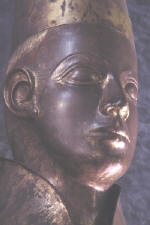| Johannes Andreae,
Novella to X 3.34.7, Venice 1581, reprinted Torino 1963, fol. 171r no.
5: "Sed [Hostiensis] quaerit etsi sic omnia liceant pape, numquid deceant?
Respondet [Hostiensis] si subest iusta causa deviandi a iure quod sibi licet,
decet, et econverso, infra eodem, de accusat. Cum dilecti. Et sumitur haec
causa ex uno de quatuor, scilicet ex qualitate negotii, personae, loci, aut
temporis, de transact. c. finali, cum suis concordatis. Si vero non subest
causa vel subest non sufficiens, non decet ipsum a iure aliquatenus deviare,
C. de leg. et constit. Digna vox. 11 q.1 Pervenit, de statu monach. In
singulis. Sed si subest causa, licet minus sufficiens, minus dedecet (motivum
leve?). . . Querit demum cum secundum
praedictum modum omnia licenat et deceant, numquid expediant? Respondet si
ordine iudiciario agitur semper expedit iustitiam facere, et numquam illam
pervertere. |
Hostiensis
asks although all things are permitted to the pope are all things fitting?
He responds that if there is a just cause for departing from the law what is
permitted to him is fitting and vice versa. . . . We may judge the cause
from four factors: the importance of the affair, the person, the place, or
the time. . . . If there is not a just cause or if
 the
cause is not sufficient, it is not fitting for the pope to depart from the
law at all. But if there is a cause, but the cause is less sufficient, it is
less fitting. . . . Hostiensis also asks finally when the pope acts
fittingly and in those things that are permitted, whether it is always
expedient? He responds that when he acts in the judicial process it is
always expedient to render justice and never to pervert the procedure. the
cause is not sufficient, it is not fitting for the pope to depart from the
law at all. But if there is a cause, but the cause is less sufficient, it is
less fitting. . . . Hostiensis also asks finally when the pope acts
fittingly and in those things that are permitted, whether it is always
expedient? He responds that when he acts in the judicial process it is
always expedient to render justice and never to pervert the procedure.
|
 the
cause is not sufficient, it is not fitting for the pope to depart from the
law at all. But if there is a cause, but the cause is less sufficient, it is
less fitting. . . . Hostiensis also asks finally when the pope acts
fittingly and in those things that are permitted, whether it is always
expedient? He responds that when he acts in the judicial process it is
always expedient to render justice and never to pervert the procedure.
the
cause is not sufficient, it is not fitting for the pope to depart from the
law at all. But if there is a cause, but the cause is less sufficient, it is
less fitting. . . . Hostiensis also asks finally when the pope acts
fittingly and in those things that are permitted, whether it is always
expedient? He responds that when he acts in the judicial process it is
always expedient to render justice and never to pervert the procedure.